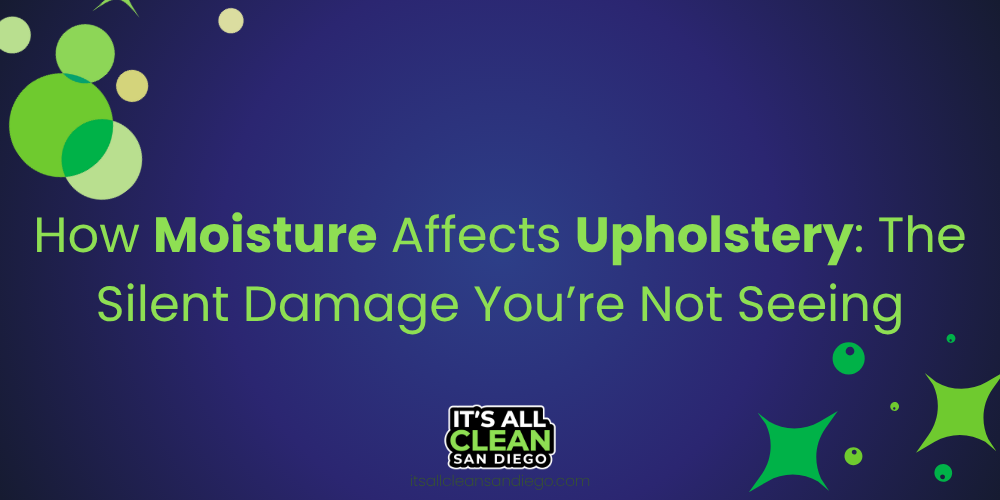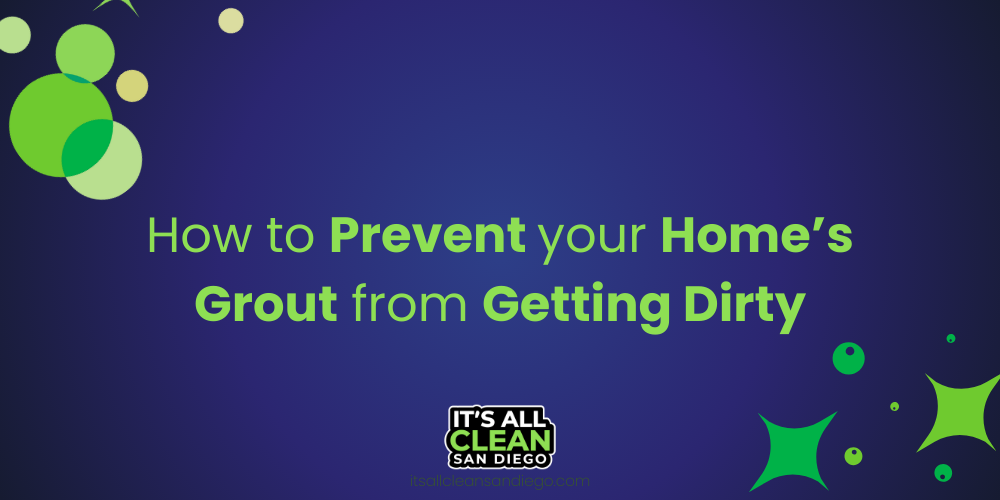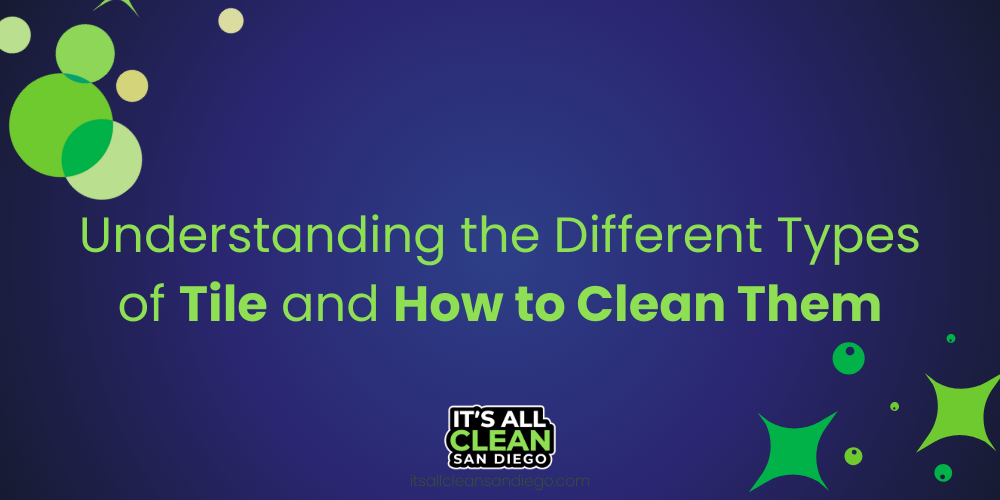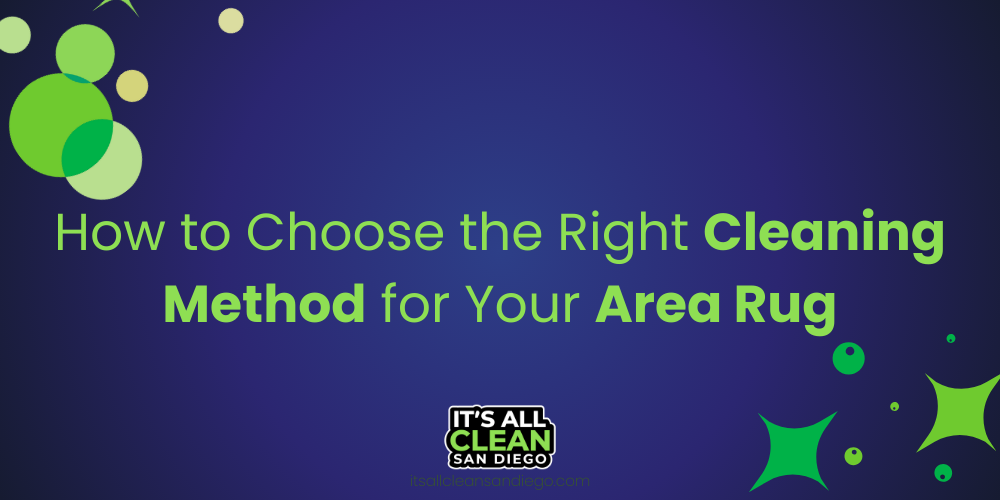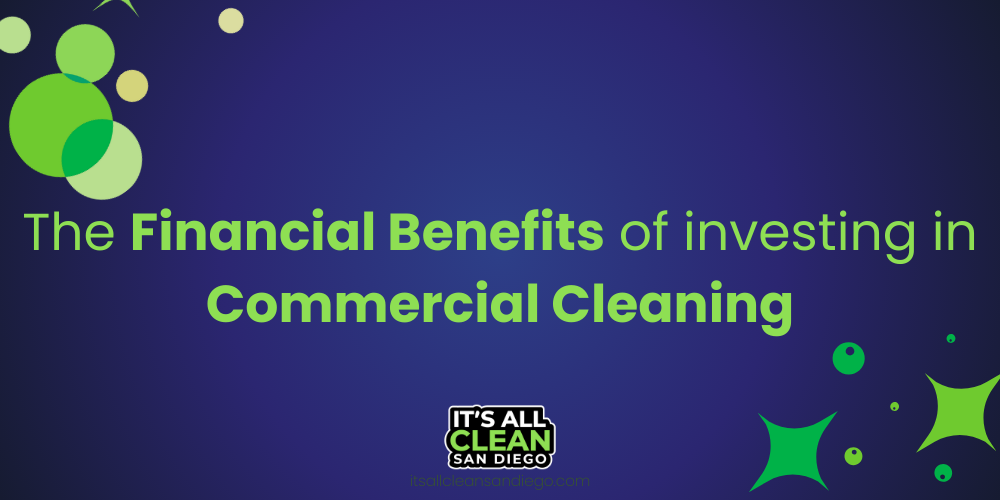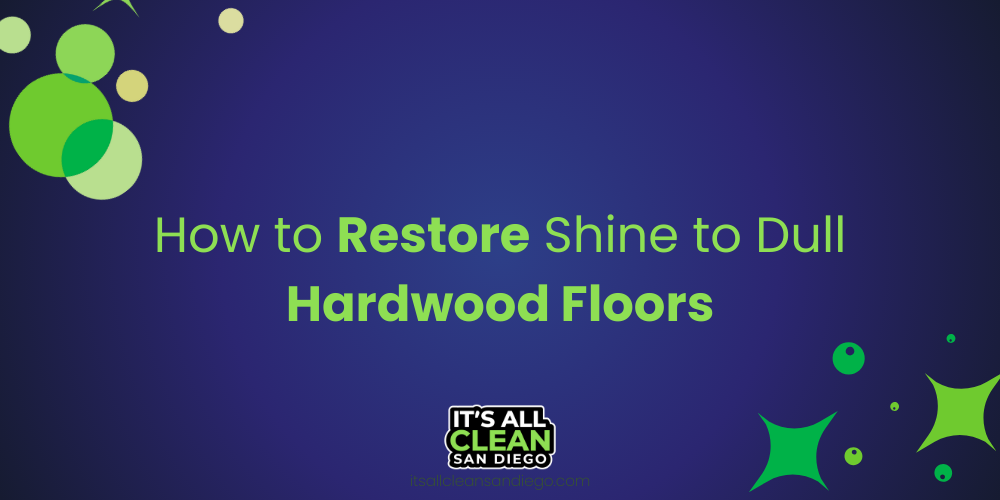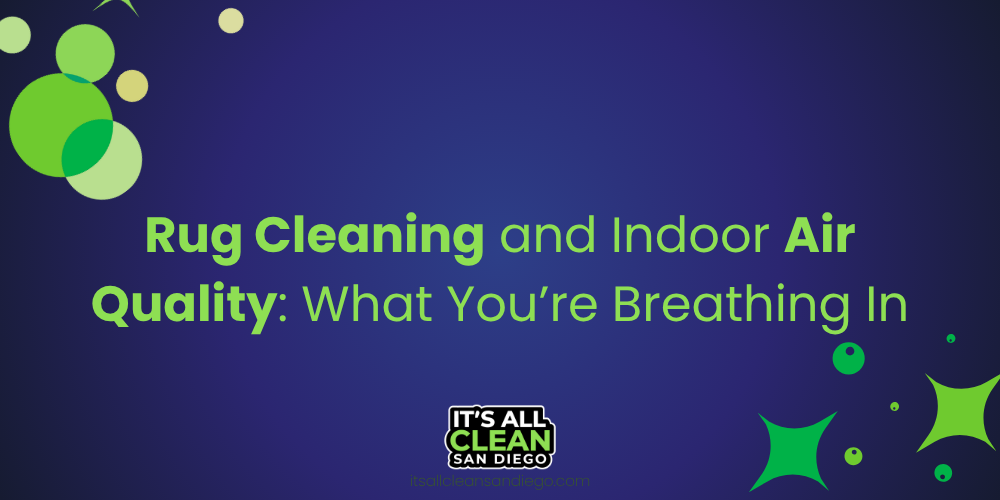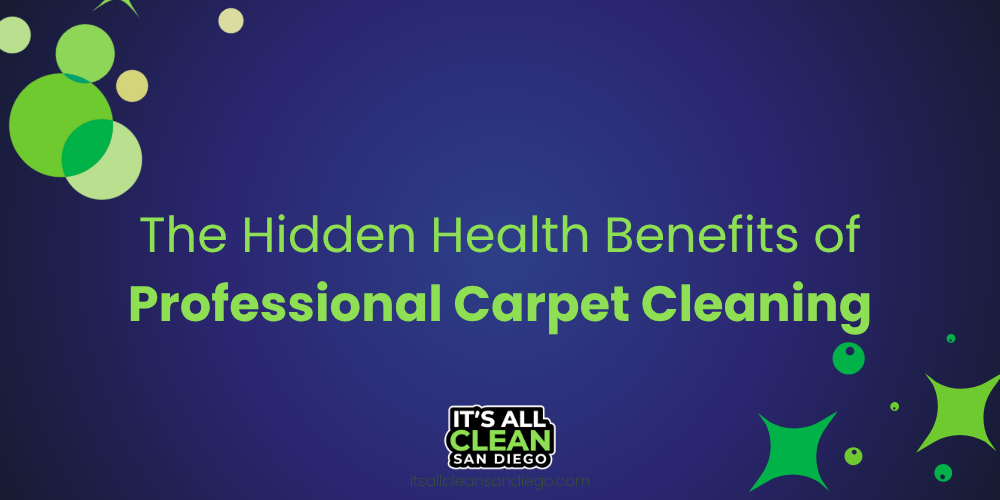Tile flooring is a popular choice for homes, offices, and boats because of its durability, visual appeal, and relatively low maintenance. But while tile may seem easy to keep clean, not all tile is created equal—and neither are the cleaning methods best suited for each type. Using the wrong products or techniques can damage your tiles, degrade grout, and reduce the lifespan of your floors.
In this guide, we’ll explore the most common types of tile, how to clean them properly, and why professional tile cleaning can make all the difference in maintaining a sparkling and sanitary surface.
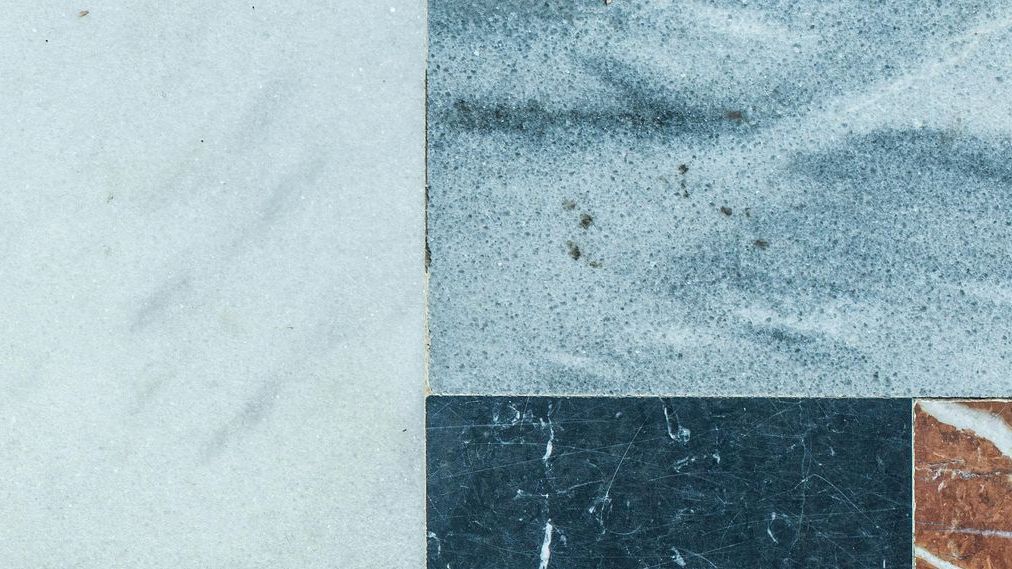
Why Proper Tile Cleaning Matters
Whether it's on your kitchen floor, bathroom walls, office lobby, or the deck of your boat, tile surfaces see a lot of action. Over time, dirt, soap scum, hard water stains, and mold can build up—especially in the grout lines. Routine mopping may not be enough, and improper cleaning techniques can actually make things worse.
Poor tile maintenance can result in:
- Dull or scratched tile surfaces
- Stained or crumbling grout
- Mold and mildew buildup in wet areas
- Lingering odors
- Decreased aesthetic and property value
Understanding the specific cleaning needs of your tile type is the key to extending its life and keeping your space looking its best.
Common Types of Tile and How to Clean Them
1. Ceramic Tile
Overview:
Ceramic tiles are made from clay, kiln-fired, and usually finished with a glaze. They are one of the most common tile types used in homes due to their affordability and versatility.
Cleaning Tips:
- Sweep or vacuum regularly to remove loose dirt.
- Use a mild detergent and warm water to mop.
- Avoid abrasive brushes or harsh chemicals, which can scratch the glaze.
- Focus on grout lines with a baking soda and water paste, then scrub gently with a soft brush.
Professional Tip: Ceramic tile is porous underneath the glaze—professional steam cleaning can lift grime from grout and corners where household tools can’t reach.
2. Porcelain Tile
Overview:
Porcelain tiles are denser and less porous than ceramic, making them ideal for high-traffic areas and moisture-prone spaces like bathrooms and boat cabins.
Cleaning Tips:
- Mop with a pH-neutral cleaner.
- Use a soft-bristled brush for textured or matte finishes.
- Rinse thoroughly to avoid residue buildup that can dull the surface.
Professional Tip: Porcelain’s density makes it resistant but difficult to clean thoroughly without professional-grade extraction tools. Routine deep cleaning keeps porcelain looking crisp and clean.
3. Natural Stone Tile (Marble, Granite, Slate, Travertine)
Overview:
Stone tiles offer a high-end aesthetic and natural elegance, but they require more delicate care due to their porous and often sensitive nature.
Cleaning Tips:
- Avoid vinegar, lemon, or acidic cleaners—these can etch and dull natural stone.
- Use only stone-safe, pH-neutral cleaners.
- Dry the surface thoroughly after cleaning to avoid water spots or mineral buildup.
- For sealed stone, reapply sealant periodically to protect the surface.
Professional Tip: Professionals use specialized cleaners that are safe for natural stone and high-powered tools that remove grime without scratching or dulling the finish.
4. Glass Tile
Overview:
Glass tiles are often used for backsplashes and accent walls due to their reflective, luminous qualities.
Cleaning Tips:
- Spray with a vinegar-water solution and wipe with a microfiber cloth.
- Use a non-abrasive sponge to avoid scratching.
- Polish with a dry towel to prevent water spots.
Professional Tip: For hard water buildup or soap scum in bathrooms, professional cleaning can restore clarity and shine without damage.
5. Cement Tile
Overview:
Cement tiles are handmade, often colorful, and known for their matte finish. However, they’re highly porous and prone to staining.
Cleaning Tips:
- Always use a pH-neutral cleaner.
- Avoid scrubbing too hard to prevent surface wear.
- Wipe spills immediately to avoid staining.
- Ensure cement tiles are sealed properly and resealed regularly.
Professional Tip: Cement tiles should be cleaned and sealed by a professional to ensure long-term durability and stain protection.
6. Terracotta Tile
Overview:
Terracotta tiles have a rustic appearance and are commonly used in Mediterranean-style homes. Like cement, terracotta is very porous.
Cleaning Tips:
- Use only non-acidic cleaners.
- Avoid wet mopping unless the tiles are sealed.
- Always dry mop or use a damp cloth with mild soap.
Professional Tip: Terracotta benefits from periodic deep cleaning and sealing. Professionals can remove embedded dirt without compromising the tile's earthy aesthetic.
Don’t Forget the Grout
Tile might be the main attraction, but grout lines are the dirt magnets of your floors and walls. Because grout is porous, it absorbs dirt, moisture, and mold like a sponge.
Grout Cleaning Tips:
- Use a baking soda paste and gentle brushing.
- Avoid bleach—it can break down grout over time.
- Consider applying a grout sealer to prevent stains and mold growth.
Professional Tip: Grout is often the most neglected area during DIY cleaning. Professional tile and grout cleaning services use high-pressure steam and specialized tools to fully extract dirt, bacteria, and mold—reviving your floors like new.
Signs You Need Professional Tile Cleaning
If you’re unsure whether it’s time to call the pros, here are some signs your tiles and grout are overdue for professional cleaning:
- Grout appears dark, discolored, or moldy
- Tiles feel sticky or look dull, even after cleaning
- Odors linger in tiled areas (especially in bathrooms)
- Surface stains won’t budge with scrubbing
- It’s been over a year since your last deep clean
Whether it’s for your home, office, or boat, professional tile cleaning ensures a sanitized, fresh, and visually stunning space.
Why Choose Professional Tile Cleaning?
While regular maintenance is essential, professional tile and grout cleaning goes above and beyond what you can do with household tools.
Benefits Include:
- Deep cleaning beyond the surface
- Elimination of bacteria, mold, and allergens
- Restored shine and color
- Longer tile and grout lifespan
- Safe, eco-friendly cleaning solutions
- Tailored techniques for different tile materials
Most importantly, professional services prevent long-term damage, saving you money in tile repair or replacement down the line.
Tile Cleaning for Boats and Commercial Spaces
Boat cabins and commercial environments—like office lobbies or bathrooms—often have tile flooring exposed to heavy moisture, salt, or high foot traffic. These conditions accelerate wear and tear.
Professional tile cleaning in these environments is critical for:
- Mold and mildew prevention
- Maintaining a sanitary space
- Extending the lifespan of flooring
- Enhancing aesthetic appeal for clients, guests, and passengers
Final Thoughts: One Surface, Many Solutions
Tiles are a durable and beautiful choice for any space—but they require specific care depending on their material and use. By understanding how to clean each type of tile properly—and when to turn to the professionals—you can enjoy long-lasting surfaces that always look and feel clean. Need a deep clean that makes your tile and grout look brand new? Trust the experts at It’s All Clean San Diego.
We provide professional tile and grout cleaning services tailored to your flooring type—whether it’s ceramic in your kitchen, natural stone in your office, or porcelain on your boat. We use eco-friendly, safe, and highly effective techniques to eliminate buildup, kill bacteria, and restore the beauty of your surfaces. Stop scrubbing on your hands and knees—leave the hard work to us.
- All rights reserved -
It's All Clean San Diego © 2021
